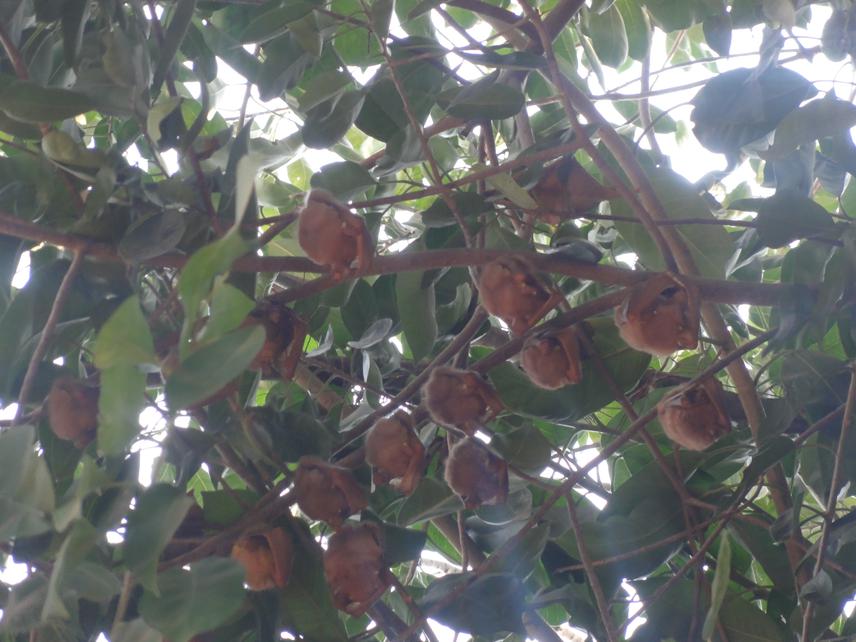Wongani Sibande
Fruit bats provide crucial ecosystem services in tropical forests, playing a vital role in pollination and seed dispersal, which helps maintain and regenerate the health of these ecosystems. Unfortunately, despite their ecological significance, fruit bats are often overlooked by conservationists and excluded from statutory protection policies.

Epomophorus species roosting in a fig tree. ©Wongani Sibande.
Ten fruit bat species have been recorded in Malawi. These species are threatened by the loss, degradation and fragmentation of their natural habitat, climate change and persecution driven by the persistence of negative attitudes towards bats. These attitudes are rooted in misconceptions about bats as invasive pests, often reinforced by local myths and misinformation. Despite these significant threats, fruit bats in Malawi have been insufficiently studied, and limited data are available to understand their distribution, ecology and conservation status, to inform and undertake appropriate conservation measures.
Hence, this project aims to achieve the following goals:
1. Initiate a community science program to monitor fruit bat populations in the Mangochi district, with the objectives of acquiring baseline data on population sizes and species distribution, mapping new roosts, and engaging local communities in bat conservation. We will achieve this through roost inspections and monitoring surveys whilst engaging local communities to obtain their knowledge of bats.
2. Collect bat guano and conduct a genetic dietary analysis to determine the fruits and plant species that are consumed by fruit bats. Some of the collected guano will be used in seed germination experiments to determine if fruit bats are responsible for dispersing fruiting trees. Successfully germinated seeds will be further grown and planted in the district.
3. Collect and document data on the habitat ecology, roost characteristics, selection criteria, roosting behaviour, population sizes, and status, as well as local threats of different fruit bat species in Mangochi.
4. Community awareness to enhance understanding of the importance of fruit bat conservation. This will include bat talks, distribution of bat-themed books in school libraries and radio panel discussions through a network of community scientists. The goal is to promote positive attitudes towards bats, mitigate human-bat conflicts and involve local communities in bat conservation.
5. Plant trees used by fruit bats as roosts or as food resources in the district together with community groups. We also seek to identify key areas for bat conservation, and consequential human-bat conflicts that require intervention in the future.